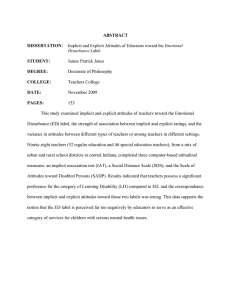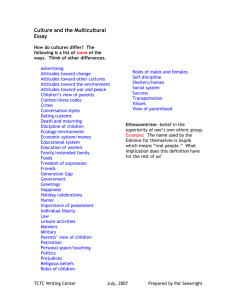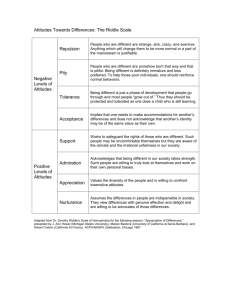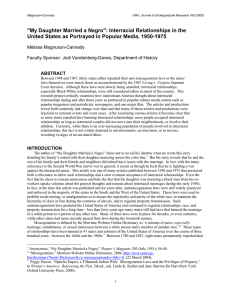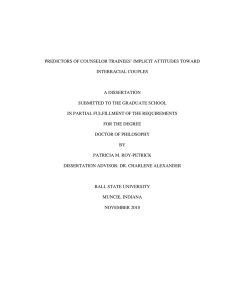Abstract DISSERTATION: Predictors of Counselor Trainees’ Implicit Attitudes Toward Interracial Couples
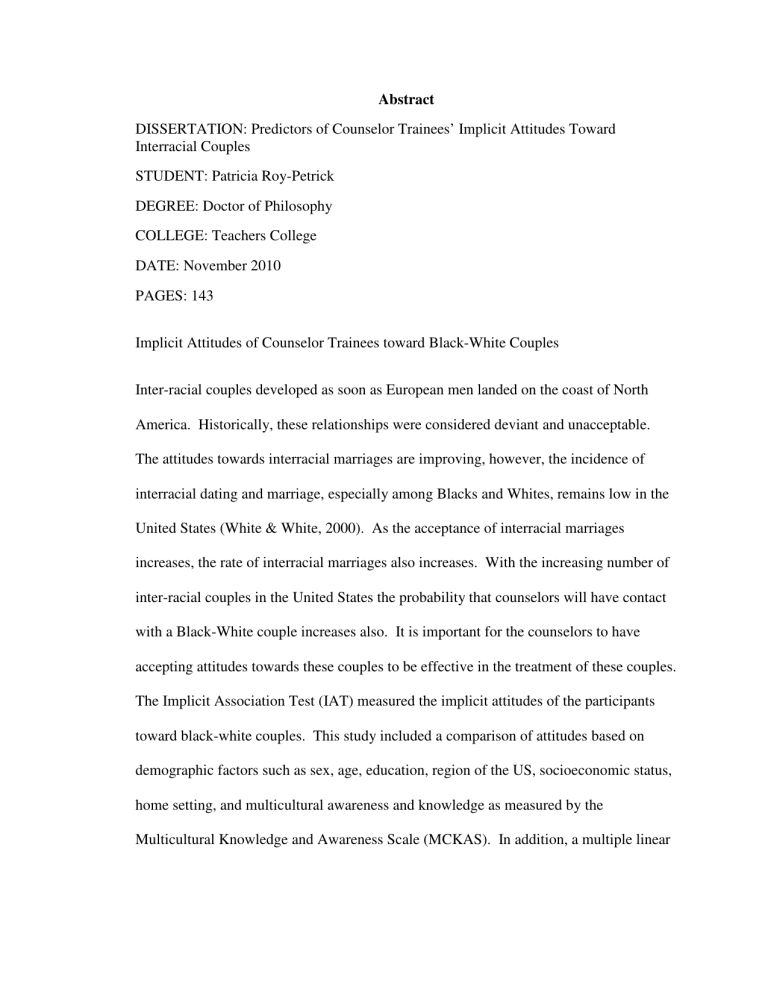
Abstract
DISSERTATION: Predictors of Counselor Trainees’ Implicit Attitudes Toward
Interracial Couples
STUDENT: Patricia Roy-Petrick
DEGREE: Doctor of Philosophy
COLLEGE: Teachers College
DATE: November 2010
PAGES: 143
Implicit Attitudes of Counselor Trainees toward Black-White Couples
Inter-racial couples developed as soon as European men landed on the coast of North
America. Historically, these relationships were considered deviant and unacceptable.
The attitudes towards interracial marriages are improving, however, the incidence of interracial dating and marriage, especially among Blacks and Whites, remains low in the
United States (White & White, 2000). As the acceptance of interracial marriages increases, the rate of interracial marriages also increases. With the increasing number of inter-racial couples in the United States the probability that counselors will have contact with a Black-White couple increases also. It is important for the counselors to have accepting attitudes towards these couples to be effective in the treatment of these couples.
The Implicit Association Test (IAT) measured the implicit attitudes of the participants toward black-white couples. This study included a comparison of attitudes based on demographic factors such as sex, age, education, region of the US, socioeconomic status, home setting, and multicultural awareness and knowledge as measured by the
Multicultural Knowledge and Awareness Scale (MCKAS). In addition, a multiple linear
regression will determine which of these variables is best able to predict the participants’ attitudes. The results showed there is a significant difference in attitudes toward interracial couples between demographic subgroups of the variable age. However, there were no significant differences in attitudes between the subgroups of the variables education, socioeconomic status, sex, race, region of the country, community type and size. The regression analyses found MCKAS was the one variable that could predict scores on the IAT.


